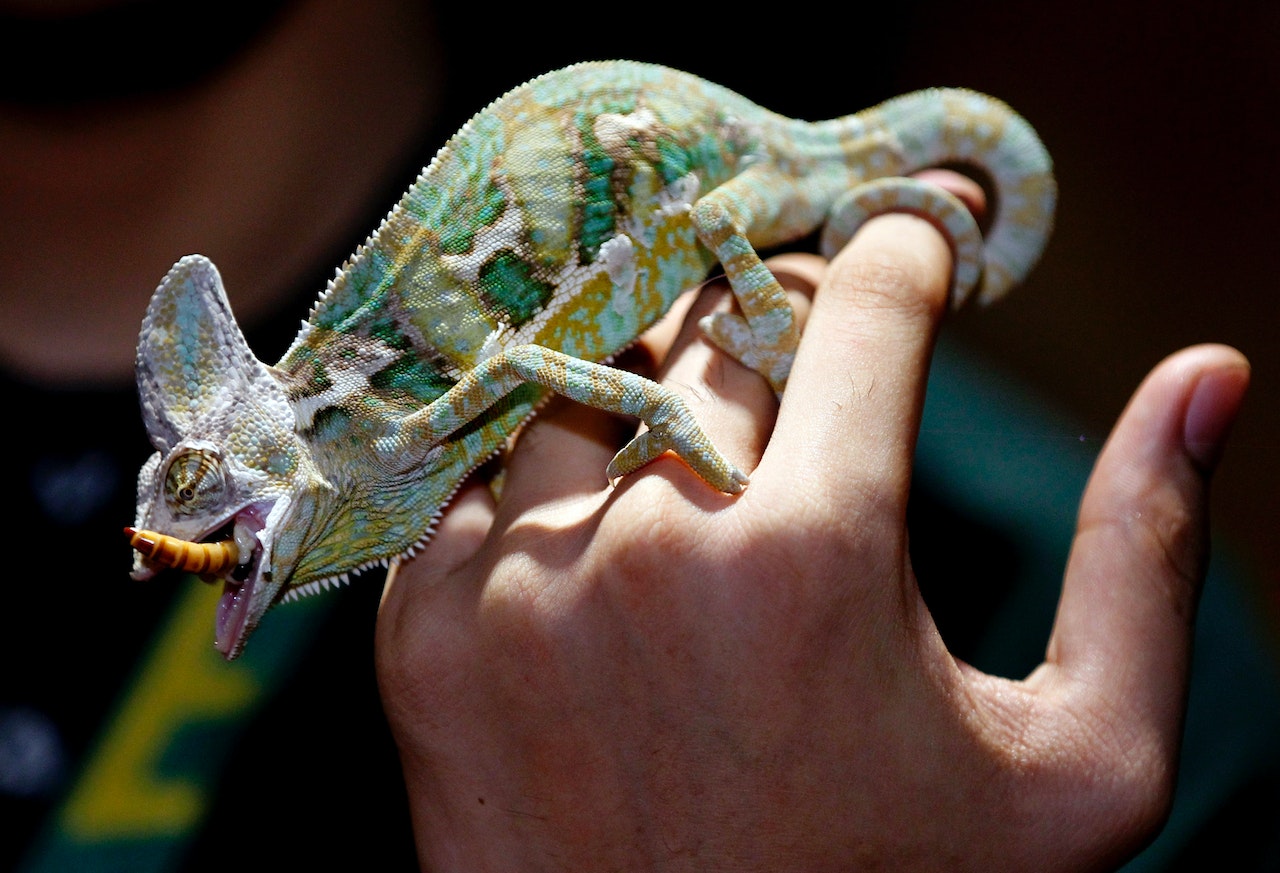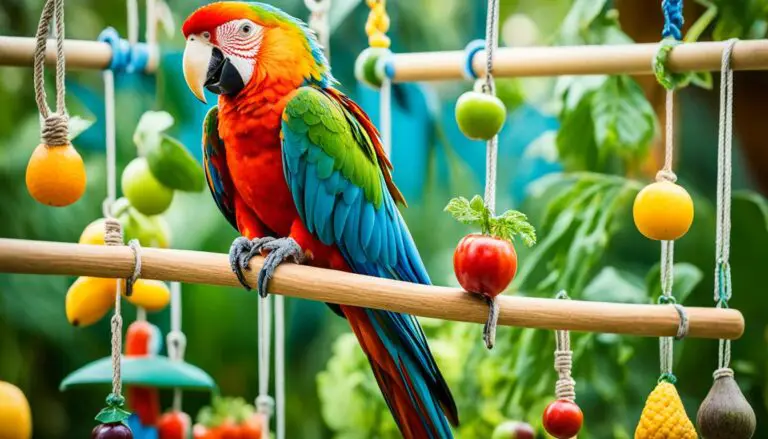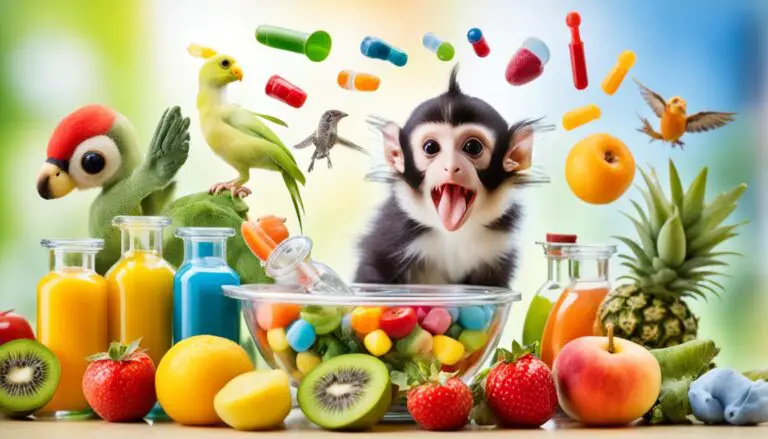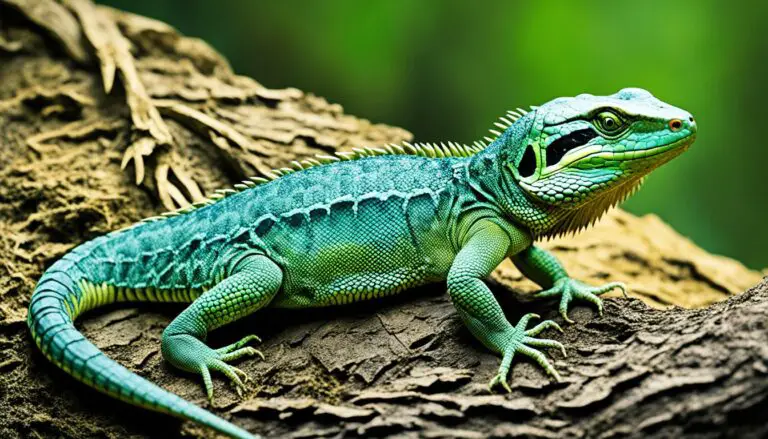Exotic Pet Feeding Tips: How to Feed Your Pet and What to Avoid
Owning an exotic pet can be a unique and rewarding experience, but it also comes with the great responsibility of ensuring they are properly fed and nourished.
Feeding your exotic pet is not as simple as just providing them with food; it requires a thorough understanding of their dietary requirements and feeding habits.
In this article, we will discuss how to feed your exotic pet in a way that keeps them healthy and happy.
Key takeaways:
- Feeding your exotic pet is a unique and rewarding experience but requires a thorough understanding of their dietary requirements and feeding habits.
- The three most common types of foods for exotic pets are commercially prepared diets, fresh foods, and live prey, depending on the species.
- Researching the nutritional needs of your exotic pet, determining their feeding schedule, and monitoring their weight are crucial for their health and wellbeing.
- Tips for feeding your exotic pet include choosing high-quality food, providing a variety of foods, following feeding guidelines, and avoiding overfeeding.
- Common mistakes to avoid include feeding insects that are too large, not providing enough water, ignoring the feeding schedule, and feeding a diet too high in fat.
- To make feeding time stress-free, establish a regular feeding schedule, create a comfortable feeding environment, and use food enrichment techniques.
- It’s important to monitor your pet’s eating habits and consult with a veterinarian if you have any concerns about their diet or behavior.
Types of Foods for Exotic Pets
Feeding your exotic pet a well-balanced diet is essential for their health and wellbeing.
There are several types of foods you can offer to your exotic pet, and each one has its own benefits. Here are the three most common types of foods for exotic pets:
- Commercially prepared foods – Commercially prepared diets are convenient and easy to use. They are specifically formulated to meet the nutritional needs of exotic pets, and they come in different forms, such as pellets, flakes, or frozen foods. Some commercially prepared diets are designed for specific species, while others are formulated for a wide range of exotic pets.
- Fresh foods – Fresh foods, such as fruits, vegetables, and meats, can provide essential nutrients and vitamins that are not found in commercially prepared diets. However, it’s essential to research the dietary needs of your exotic pet and ensure that the foods you offer are safe for them to eat.
- Live prey – Some exotic pets, such as reptiles and birds of prey, require live prey as part of their diet. Offering live prey can provide enrichment and stimulation for your pet, but it’s important to ensure that the prey is appropriate for your pet’s species and size.
Understanding Your Exotic Pet’s Diet
Before you can start feeding your exotic pet, you need to understand their specific dietary requirements.
Each species of exotic pet has a unique set of nutritional needs, which can vary depending on their age, gender, and overall health.
Here are some things to consider when determining your exotic pet’s diet:
1. Research the Nutritional Needs of Your Pet
Different types of exotic pets require different diets, so it is essential to research the nutritional needs of your specific pet.
For example, snakes require a diet consisting primarily of rodents, while lizards need a variety of insects and vegetables.
2. Determine How Often to Feed Your Pet
Most exotic pets have specific feeding schedules that vary depending on their age and size.
For example, a baby snake may need to be fed once a week, while an adult snake may only need to be fed once a month.
3. Monitor Your Pet’s Weight
It’s important to monitor your exotic pet’s weight regularly to ensure they are not over or underfed.
If you notice significant weight loss or gain, you may need to adjust their diet accordingly.
Tips for Feeding Your Exotic Pet
Once you understand your exotic pet’s dietary requirements, you can start feeding them.
Here are some tips for feeding your exotic pet:
1. Choose High-Quality Food
It’s essential to choose high-quality food for your exotic pet, as this will help ensure they receive the proper nutrients they need to thrive.
Look for food specifically designed for your pet’s species and age.
2. Provide a Variety of Foods
Exotic pets often require a diverse diet to ensure they receive all the necessary nutrients.
To put things into perspective, some lizards require both insects and vegetables to maintain a healthy diet.
3. Follow Feeding Guidelines
Most exotic pets have specific feeding guidelines that should be followed carefully.
Note that some snakes require live prey, while others can be fed frozen rodents.
4. Avoid Overfeeding
Overfeeding your exotic pet can lead to obesity and other health issues.
That’s why it’s essential to follow a feeding schedule and avoid giving them too much food.
Common Mistakes to Avoid
When feeding your exotic pet, there are some common mistakes to avoid to ensure they stay healthy:
1. Feeding Insects That Are Too Large
Feeding your exotic pet insects that are too large can cause digestive issues and other health problems.
Always choose insects that are appropriate for your pet’s size.
2. Not Providing Enough Water
Many exotic pets require access to fresh water at all times.
Make sure your pet has access to a clean water source.
3. Ignoring Your Pet’s Feeding Schedule
Ignoring your exotic pet’s feeding schedule can lead to health problems and overfeeding.
Stick to a regular feeding schedule.
4. Feeding Your Pet a Diet That Is Too High in Fat
Feeding your exotic pet a diet that is too high in fat can lead to obesity and other health issues.
Make sure to choose foods that are high in protein and nutrients.
Tips for Making Feeding Time Stress-Free for Your Exotic Pet
Feeding time should be a positive experience for both you and your exotic pet.
However, it can be stressful if your pet is picky or aggressive during feeding time.
Here are some tips to help make feeding time stress-free for your exotic pet:
- Consistency is Key – Establishing a regular feeding schedule and sticking to it can help reduce your pet’s stress and anxiety. Consistency can also help your pet maintain a healthy appetite and avoid digestive problems.
- Create a Comfortable Feeding Environment – The feeding environment should be quiet, calm, and free of distractions. Offer your pet a designated feeding area where they feel safe and secure. If your pet is easily stressed, consider using a feeding box or enclosure.
- Use Food Enrichment Techniques – Enrichment techniques can make feeding time more stimulating and enjoyable for your pet. For example, you can offer food in different ways, such as hiding it in a puzzle feeder or offering it on a skewer or stick. This can help stimulate your pet’s natural hunting instincts and provide mental stimulation.
By following these tips, you can help ensure that your exotic pet’s feeding time is stress-free and enjoyable.
Remember to monitor your pet’s eating habits and consult with a veterinarian if you have any concerns about their diet or behavior.
Conclusion
Feeding your exotic pet requires a thorough understanding of their dietary requirements and feeding habits.
By following the guidelines outlined in this article, you can ensure your exotic pet stays healthy and happy.
Remember to choose high-quality food, provide a variety of foods, follow feeding guidelines, and avoid common mistakes.
FAQs
What should I feed my exotic pet?
The diet of your exotic pet depends on its species and individual nutritional needs.
Do your research to find out what foods are recommended for your pet, and consult with a veterinarian or a qualified exotic pet specialist for advice on proper nutrition.
How often should I feed my exotic pet?
The feeding frequency of your exotic pet can vary depending on its species, age, and size.
Make sure to follow a feeding schedule that is appropriate for your pet’s needs, and monitor their weight to ensure they are not over or underfed.
Can I give my exotic pet human food?
It is not recommended to give your exotic pet human food, as it may not meet their specific nutritional needs and could potentially cause health problems.
Stick to feeding them a diet that is specifically designed for their species.
What should I do if my exotic pet refuses to eat?
If your exotic pet refuses to eat, it could be a sign of illness or stress.
Consult with a veterinarian or a qualified exotic pet specialist to determine the cause and proper treatment.
What should I do if I suspect my exotic pet is not getting the proper nutrition?
If you suspect your exotic pet is not getting the proper nutrition, consult with a veterinarian or a qualified exotic pet specialist to determine the cause and proper treatment.
They may recommend a dietary change or supplements to ensure your pet is getting the nutrients they need.
Peter Stones is the founder of Exotic Pets Place, the leading online resource for exotic pet care information.
With over 10 years of hands-on exotic pet ownership experience, he is deeply passionate about sharing his expertise to help others properly care for their unusual pets.
When he's not writing extensively researched articles or connecting with fellow exotic pet enthusiasts worldwide, you can find Peter at home tending to his own beloved menagerie of exotic animals.







